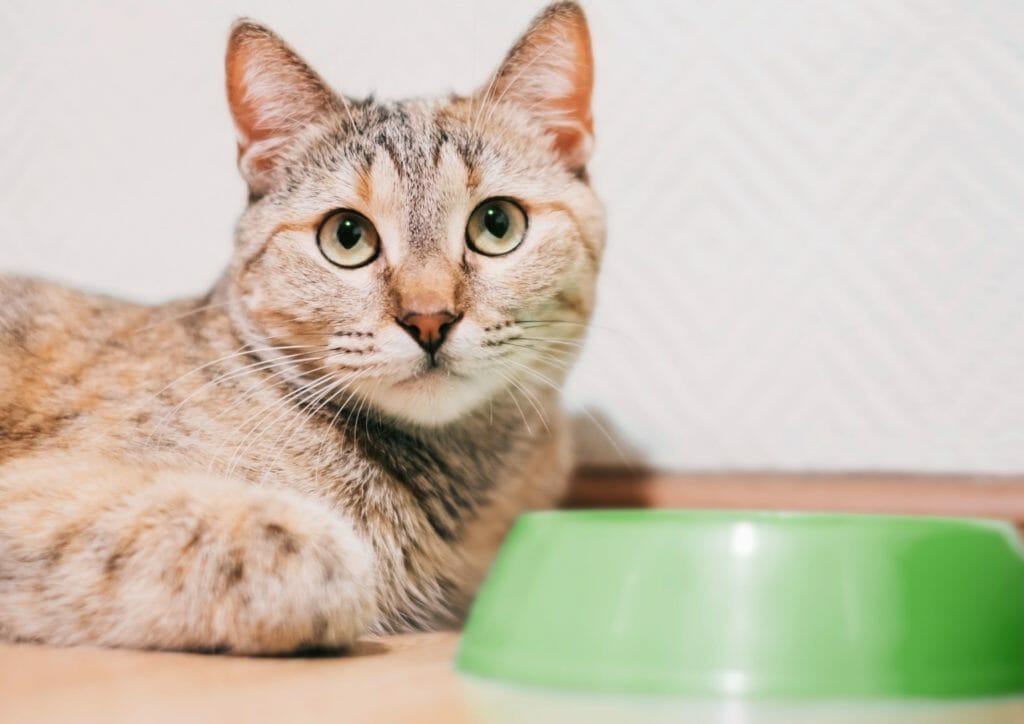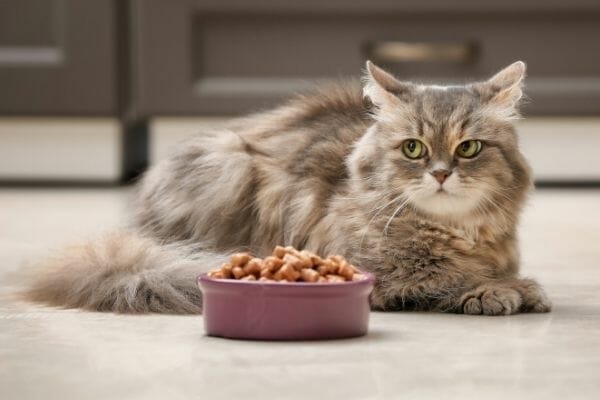Feline pawrents, especially new ones, should be aware that cats experience tummy troubles at least once in their lives. Some cats will vomit white foam, while others may puke their food after a meal. There are many culprits to digestive issues, ranging from foreign objects in your cat’s body to skipping a meal. However, some cats are just born with sensitive stomachs. If you suspect this is the case with your pet, don’t worry! There are ingredients that help make it easier for your cat to digest her food.
Before we discuss what you can feed cats with sensitive stomachs, please be reminded that this article is only a guide. It should not be replaced with a visit to the veterinarian. We want to arm you with information that can help your pet, but only a qualified and trained professional can truly assess if your cat has a sensitive stomach and guide you regarding which food/ingredients will suit her.
With that in mind, this article tackles:
- Common causes of cat stomach irritation
- Human food options for cats with sensitive stomachs
- Cat food ingredients for sensitive stomachs

Common causes of cat stomach irritation
There are many possible reasons why your cat is suffering from a gastrointestinal (GI) disturbance. Common culprits include poorly digestible foods made of low-grade rendered meats, food allergies or intolerances, or food made with additives, flavourings, and/or preservatives. Changing the food or treat she eats may instantly trigger a GI disturbance, so before switching cat food brands or making the change from dry to wet food, get your vet’s approval first.
If your cat is sensitive to a certain ingredient, she may display these signs: vomiting, diarrhea, irritated skin, poor coat condition, and hair loss. These may be linked to a food allergy or food intolerance, which may also manifest as flatulence, frequent scratching, inflamed skin, chronic ear problems, coughing, wheezing, and/or sneezing.
Aside from food-related irritation, having parasites in her stomach or getting stressed can cause stomach sensitivities. Stress can manifest through physical and behavioural changes. Some signs include vomiting, experiencing the runs, eating less, and avoiding the toilet.
It is important to note that cat vomiting does not necessarily mean your pet is sensitive to her food. It may also be a symptom of more complex health issues, such as pancreatitis, diabetes, or hyperthyroidism. A trip to the vet is recommended so that he can determine the real cause of your cat’s ailment and suggest the right course of action.
Human food options for cats with sensitive stomachs
If you’re the type of paw parent who likes making your cat try human food, go through our growing list of cat-friendly ingredients before giving her anything. Some cats are known to have allergies and/or intolerances to beef, chicken, fish, eggs, milk, yogurt, and cheese.
Remember that cats can consume some fruits occasionally and moderately. These include watermelon, strawberry, blueberry, and mango. Meanwhile, cat-safe veggies include corn, potato, carrot, broccoli, and asparagus. All of these raw produce should be washed and prepared properly before being given to your cat. Never cook the vegetables with garlic, onion, salt, or sugar, which are known to be toxic for your cat.

Cat food ingredients for sensitive stomachs
Once your vet has confirmed that your cat has a sensitive stomach, you can modify her diet with your vet’s guidance. A diet trial can last for a few months until you get it right. You will need to gradually introduce new ingredients and/or cat food brands to find the best mix your cat will enjoy eating and, at the same time, fully benefit from.
When choosing new cat food to feed your pet, look for highly digestible meals that have moderate to low fat, moderate protein, and moderate carbohydrates. Some meals may even contain additives that improve GI health, namely: antioxidant vitamins, omega-3 fatty acids, and soluble fiber. They should never have ingredients such as gluten, lactose, food colouring, or food preservatives. Scan the ingredients of the nutrition label, making sure the vet-approved ingredients are on the top of the list and do not contain ingredients your cat is allergic to.
Go for a hypoallergenic diet with either a limited ingredient, a novel protein, or a hydrolyzed protein. PetMD reports that limited ingredient diets typically contain only one single protein source and one single carbohydrate source. These can be bought without a prescription. Meanwhile, novel animal protein diets are vet-prescribed and contain a single-source protein. Plus, they are produced in a facility that prevents cross contamination, guaranteeing less risk for your cat. Lastly, hydrolyzed protein diets have broken down protein, so they are less likely to be recognized by your cat’s immune system. Similarly, they also require a veterinary prescription.
You can also try switching your cat’s food from dry to wet (or vice versa!) and reduce the amount of food she eats per meal. This will help her digest meals better, and prevent post-meal vomiting from happening. Placing her meal over a lick mat can also promote slow feeding habits, and, as a result, help decrease digestive issues.
In conclusion
Cats with sensitive stomachs need not suffer from blah-tasting meals or limited feeding options. By carefully choosing premium ingredients and crafting a well-rounded and nutritious diet for your pet, she can get back to being one happy, healthy, and contented cat.
Discover more pet-related guides in our blog! Help your cat gain weight or learn how to make kitty glop.
Leave a comment
Your email address will not be published. All fields are required.